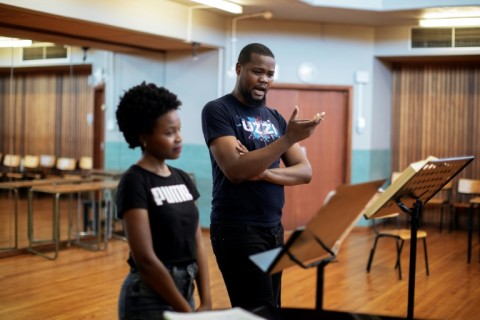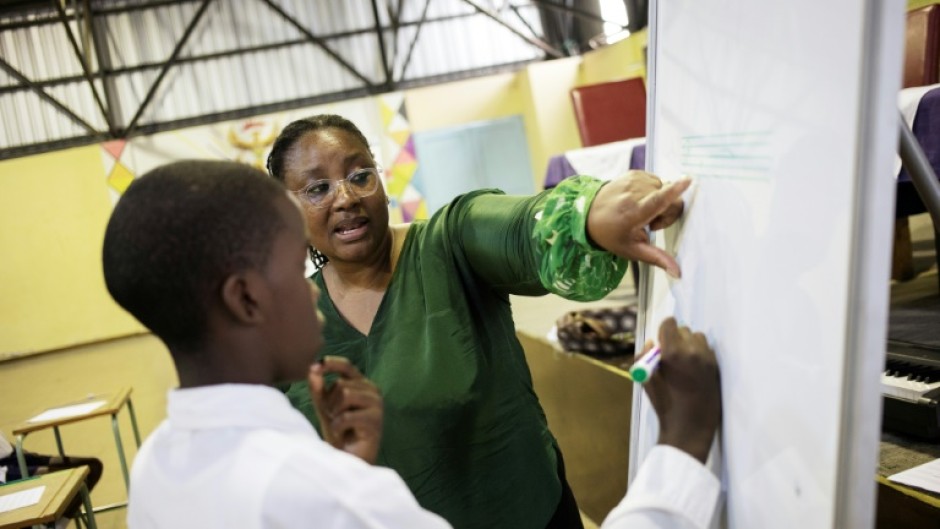CAPE TOWN - Yonwaba Mbo had a future in farming laid ahead of him when the opera "bug" hit.
A few years ago, the tall, broad-shouldered South African decided to ditch agricultural studies to have a go at lyrical opera.
At 31, he is now rehearsing to play Figaro in the "Marriage of Figaro", preparing to take the first steps as an opera soloist.
Mbo is a student at the University of Cape Town (UCT) music faculty, home to what is arguably Africa's most prestigious opera school.
Pretty Yende, the soprano who sang at the coronation of Britain's King Charles III this year, honed her skills there, as have other rising stars of world opera.
Like Yende, who grew up in a small village in eastern South Africa, many of the school's students got into singing somewhat late in life, often by chance.
"Before I studied opera... when I heard it, I would always ask myself: why are these people always screaming?" Mbo, a powerful baritone, says with a laugh.
"Then when the bug bit me, I got to hear the technical side of it and to understand how much work you need to put in, in order to sound like that. I started appreciating the art."
Unable to read a musical score, he started from scratch.
For six years now he has studied all things opera, motivated by the idea that someone like him can tell a story in music, singing in a foreign language.
On a November morning at the leafy university campus, he is practising his rendition of Figaro, Mozart's rebellious servant, alongside Siphosihle Letsoso.
Letsoso, 23, who hails from the former mining town of Kimberley in the Karoo desert and also dreams of a career as a soloist, plays Figaro's lover Susanna.
"There is no opera scene in Kimberley!" she laughs. "That's what is really encouraging me to just do well. So that I could go back one day and develop the theatre, liven it up."
- 'Raw talent' -
Aspiring singers arrive at the academy with "raw talent" in need of refinement, says the British conductor Jeremy Silver, the school's director.

In a bright classroom, Silver sits at a piano as he accompanies Mbo and Letsoso in their rehearsal.
"With this crescendo, you're becoming more insistent, you're telling him things straight," he tells Letsoso, who diligently takes notes.
The Cape Town academy is the only opera school in the country with a comprehensive curriculum, including music, singing, acting and opera languages including Italian, French and German.
"There is a huge amount of talent in South Africa," says Silver, adding that the country is now firmly on the global opera map.
School, church and community choirs are ubiquitous in South Africa, helping expose people to "free, open singing" from a very young age, he says.
"What we then have to do is to focus that interest, focus their instincts, and to teach them all the other skills."
This year, the school held auditions in six cities across South Africa.
It offers music lessons in disadvantaged areas of Cape Town, organised by singing teacher Paulina Malefane, who keeps an eye out for promising voices.
In the township of Khayelitsha east of Cape Town, one of the largest and poorest in the country, around thirty schoolchildren are learning to sing the C scale.
"One day when you are grown up, you will come and take my job!" Malefane says, encouraging a girl who is drawing a treble clef on a white board.
A renowned actress and singer, Malefane also overcame a lack of theoretical knowledge she started off -- something she hopes her pupils will not have to go through.
"If and when they decide to take music or opera... at least they have something they can start with. They have some background of music," she says, as a student points with a hesitant finger to the C note keys on a piano, drawing thunderous applause from her classmates.
- by Julie Bourdin

